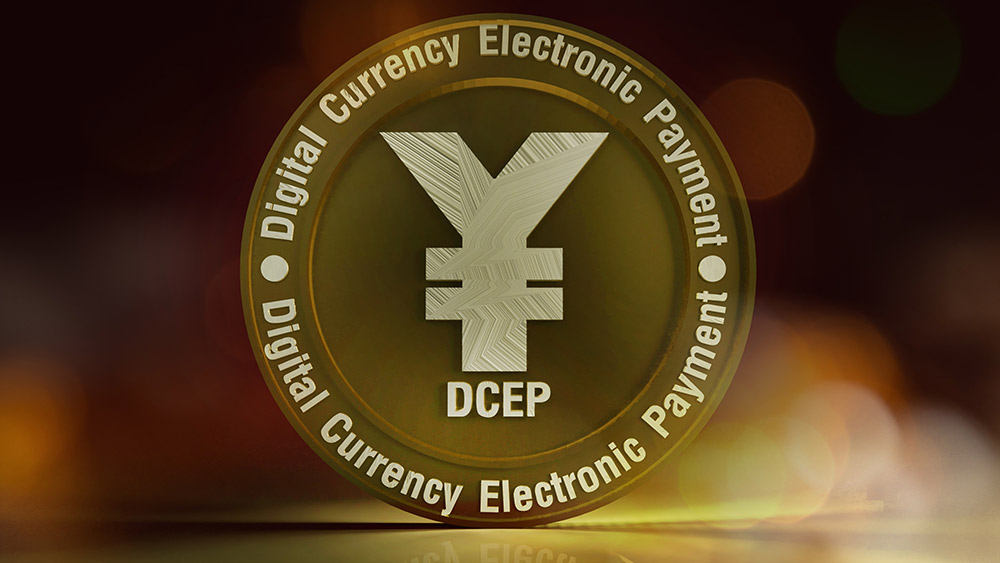
Source: Depositphotos
Reading time: five minutes
For the past several months, the Chinese government has been hard at work to create an electronic equivalent of its national currency—the Renminbi. If successful, the e-RMB will become the first digital currency to be officially used by a leading economic power.
With that said, there are growing concerns that Chinese officials might abuse the power that comes with a state-backed digital currency to further their nationwide surveillance efforts.
What is e-RMB?
In China, digital currencies are far from new. In fact, the nation’s digital economy, forefronted by Alibaba Group Holding and Tencent Holdings, has outpaced the Western world by such a large margin that you would be hard-pressed to find someone there paying for their coffee in “paper money”—for the Chinese, most payments have long since migrated to digital payment apps.
This time around, however, things are different. Still without an official name, the digital version of the Renminbi is about to become the first electronic currency to be backed by a central bank, with four of the largest commercial banks in the country already performing internal tests. Since it will be government-backed, China’s digital cash will be regarded as the equivalent of a banknote or a coin, with it being stored in digital as opposed to physical wallets.
Among the benefits of a state-run digital currency include the ability to engage in money transfers without a bank account, granting close to 225 million people in the country, who are otherwise nowhere near any kind of banking system, access to various financial services. Since the digital money will be much easier to track compared to its paper predecessor, its implementation is also expected to lead to fewer frauds and other illegal practices.
Why is the currency being introduced?
According to Chinese officials, the need for e-RMB has existed as early as 2014, when the government was shaken by huge technological leaps in its financial system. Another reason is that, just for 2019 alone, the total earnings from mobile transactions climbed to 347trn yuan ($49 trillion)—a staggering amount that is hard to regulate via traditional banking methods. Last, but not least, the Chinese government claims that the e-RMB will better protect their users’ privacy and aid the battle against inflation.
The new payment system has already been rolled out in the cities of Shenzhen, Suzhou, Chengdu, and Xiong’an since April this year, with some government employees set to receive their first “digital” salaries as early as this May.
e-RMB as a policy-making tool
When implementing the digital currency, the policymakers will have to be extra vigilant not to upset other money sources, such as bank deposits for example, as this would cripple banks’ ability to issue loans. There’s also the issue of competing with Alibaba Group Holding and Tencent Holdings—the developers of the immensely popular Alipay and WeChat digital payment apps.
However, that might just be what the government wants since officials argue that too much of the country’s finances are being handled by a handful of big corporations.
“Those big tech companies bring to us a lot of challenges and financial risks. . . . You see: in this game, winners take all, so monopolies are a challenge.”
Yi Gang, People’s Bank of China Governor
Not everyone agrees with China’s plan
Up until now, the task of tracking the paper version of the Renminbi has become increasingly difficult due to the fact that most cash transactions happen offline, while the transaction data, if any, is too scattered for the Public Bank of China to monitor effectively.
But with the new digital currency, the Chinese government will have unprecedented control over any money that flows in or out of the country. With the e-RMB in use, government officials will also be able to fight money laundering or tax evasion practices much more effectively. However, they could also put limits on the sizes of transactions or even require people to make appointments with authority figures before they could proceed with larger transfers.
“Although there is little change from the perspective of user use, from the perspective of central bank supervision, future forms of finance, payment, business and social governance etc, this is the biggest thing ever.”
Xu Yuan, associate professor at Peking University
Understandably, the near-unlimited power that comes with the digital RMB concerns quite a few people who wonder whether the currency is yet another milestone in the development of the government’s upcoming social credit system, where exemplary citizens are rewarded with a higher score rating and privileges, while those who go “against the grain” are subjected to penalties and restrictions.
The final verdict
Apart from some predominantly internal testing efforts, the jury is still out on when this new currency will be officially rolled out throughout China. Even then, CITIC Securities, the nation’s largest full-service investment bank, argues that it would take several years for the digital Renminbi to replace as little as 10% of all physical cash that is currently in circulation.
It’s also unknown whether the digital currency can be moved across borders—if this were to happen, the promise of instantaneous international transfers could encourage the rest of the world to gradually adopt China’s payment model and, eventually, its digital currency.
At the same time, however, the great power that comes with the implementation of a state-backed e-currency might upset Chinese consumers who, although traditionally quick to adopt new fintech developments, might now find the government’s reach to be far too wide.
***
Looking to trade on the global markets, but have little or no experience? Open a demo account in Delta Trading and test your boldest strategies in a real market environment, without the risk of losing real funds.